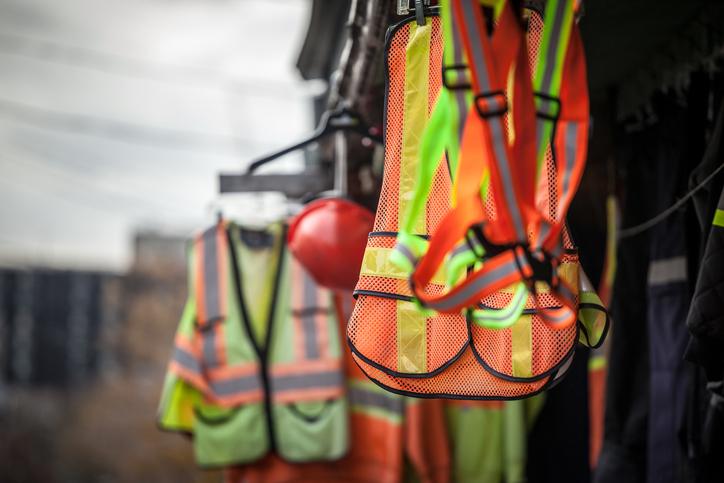Site Safe is committed to ensuring Kiwi workers return home to their whānau at the end of each day.
We create and continue to develop training such as our Foundation Passport - Building Construction and Civil training courses as part of our pledge to build safer and healthier workplaces.
The Foundation Passport courses convey on-site health and safety responsibilities. They introduce vital topics such as how to keep yourself safe, understanding and controlling risk, mental health and basic hazards and legal requirements.
Site Safe has recently been collaborating with industry representatives and subject matter experts to develop the updated foundational course-specific content.
Site Safe Chief Executive Brett Murray said he was pleased with the updated Foundational courses and that they reflected the health and safety standards set by the industry.
"It is really important as an industry association that we work hand-in-hand with industry while developing our courses.
"The new Foundational Passport has been developed with industry input and consultation throughout and sets the standard for what the industry wants in a foundational construction course."
The updated training offers plenty of new material for learners. Some of the key changes are:
• Staff will be able to identify the top critical hazardous activities in Building Construction and Civil
• Information on mental health has been introduced
• We consulted with a neuro-diverse expert to ensure the look and feel of our presentation addresses the needs of staff who may have learning difficulties
• Content focuses on the basic concepts of health and safety to keep it genuinely foundational
• Handbook has moved to an eBook offering direct links to more helpful information
• It now offers 20 Review of Understanding questions instead of 10 (with the same 80% pass rate), providing greater assurance of each learner’s foundation health and safety knowledge
The improved Foundation Passport courses were trialled across the country and were launched in September. It is expected staff will gain a better learning experience with a consistent, standardised course endorsed by those in the industry.
Naylor Love Health and Safety specialist Gareth Wood is one of the subject matter experts who helped develop the Foundation courses.
He told Site Safe the enhanced training was a "big step up" from when he first did it.
He said it had become better targeted to those entering the industry, particularly foreign workers or those unfamiliar with construction in New Zealand.
Gareth said it was important to have these Foundation Passport courses available with more people entering the industry without construction backgrounds.
"It’s important they have … a basic understanding of health and safety and those fundamentals that they need when they go on-site."
Most major New Zealand contractors require a Site Safety Card when entering a site.
We have included a green foundation indicator on the Site Safety Card for anyone to see at a glance that you and your staff are foundation-level trained.
Those who attended the trial run of the new courses were asked what they liked the most from the new offering.
One of the respondents said they liked the aspect of working as a group to identify hazards before they enter the industry.
Others also highlighted the group activities and how this helped make the teachings easier to understand and encouraged everyone’s participation.
While others said they appreciated the learning material, such as the "engaging" slides and images.
Additionally, Site Safe has been working alongside the Ministry of Social Development and Virtual Reality (VR) company SkillsVR to provide a VR foundation training experience for jobseekers looking to join the construction industry.
Many expect the use of VR technology to ramp up significantly over the next decade. Site Safe wants to ensure we are at the forefront in offering opportunities to utilise the technology.
Jacob Hedley, a jobseeker who recently moved from Australia to New Zealand with his family, is the first person to receive a site safety card through the VR course.
Jacob was responsible for inducting new workers on forklifts in his previous role working for a major logistics company.
He said he was "blown away" by the new foundational VR course and hoped more organisations would adopt VR to induct their workers, particularly those that are operating machinery.
Speaking about his time inducting workers, Jacob said it was often time-consuming and there were many potential risks of accidents happening.
He said using VR technology like that of Site Safe’s new foundational courses, could offer a safer and more efficient way to induct workers giving more opportunities to train larger groups while removing them from the on-site risks, but still making them feel as if they are physically there.
"If you look at it it’s similar to an air pilot simulator, if you can get it down to a fine art, you can actually go [onto the] site, take a video of whatever that site is and say, 'this is what we do here' and also what that will do [is it] will save managers time in getting someone to induct them."
He suggested workers do the VR induction first and that way management can monitor their skills and then make an informed decision about when they are put into a real-life situation.
Further developments on the VR project are expected later in the year.
To learn more about our classroom and fully online Foundation Passport courses or any other training courses, visit the Training section on the Site Safe website (www.sitesafe.org.nz/training).






